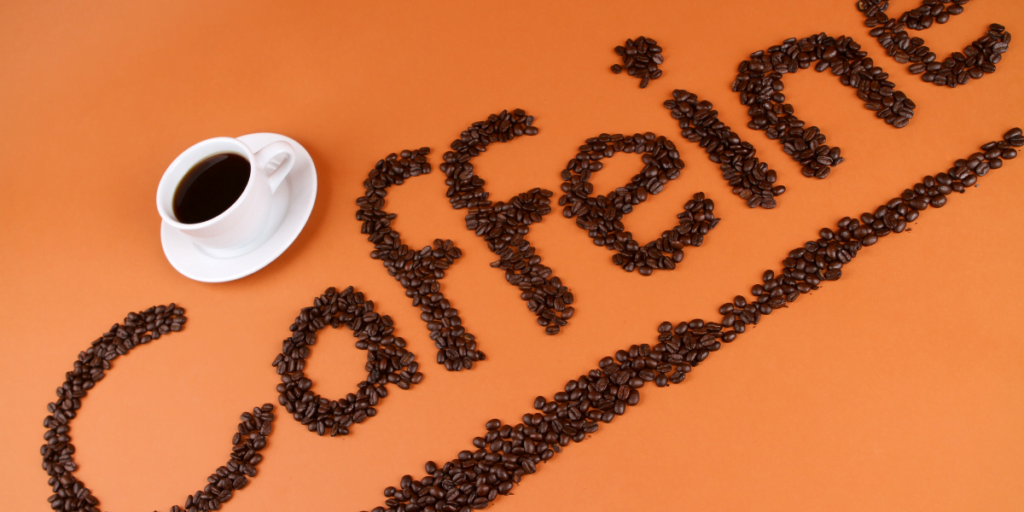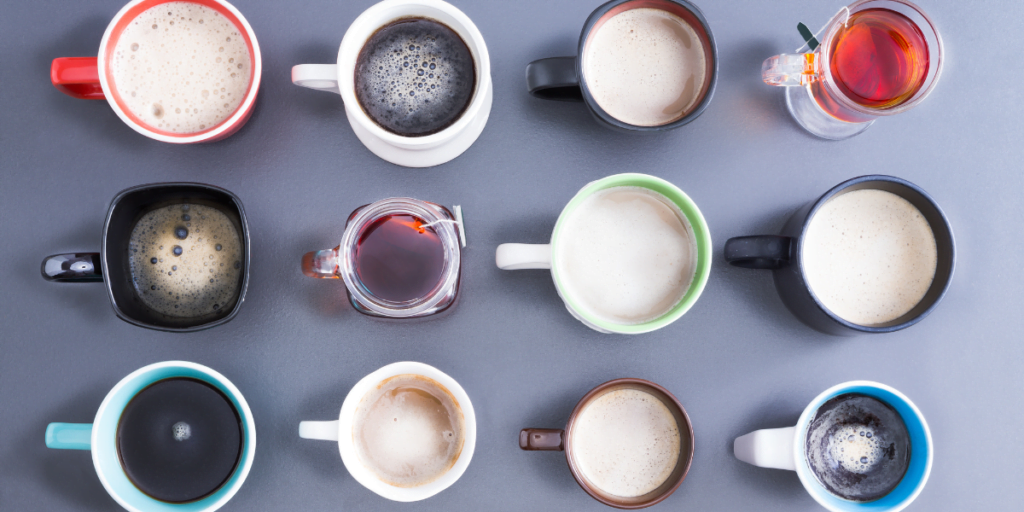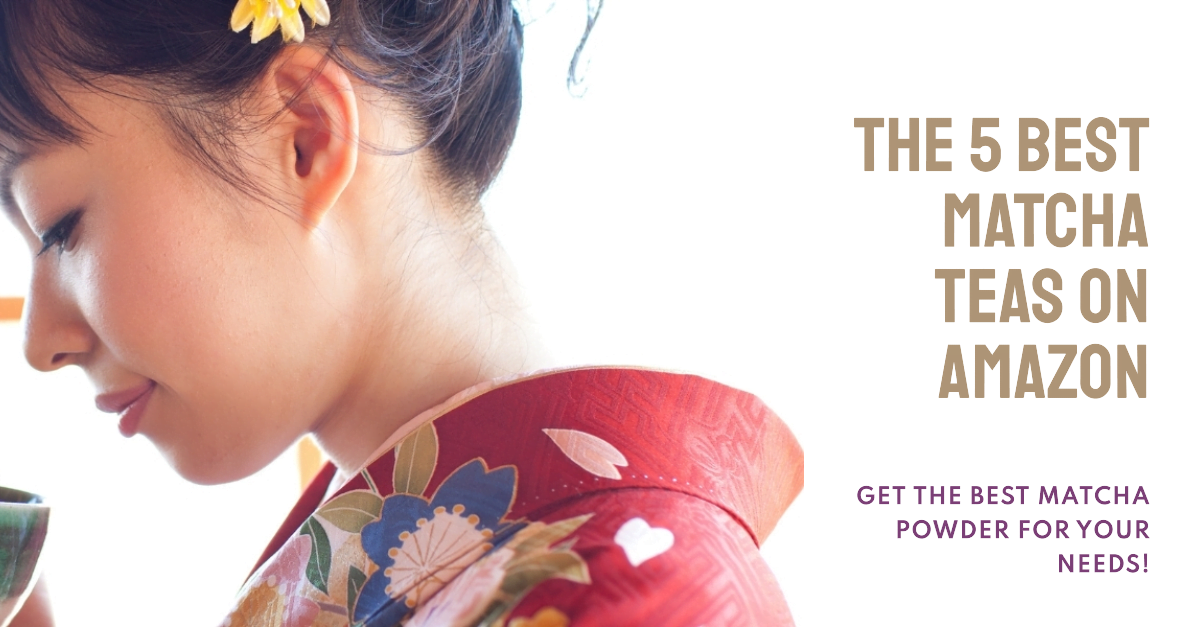Matcha tea is a healthier, natural alternative to coffee and other sugary energy drinks. It contains caffeine as well as antioxidants, and other compounds that provide a sustained energy boost. This blog post compares the caffeine content of matcha and coffee and explains why matcha is a great choice for those looking for a healthier energy source.
Get a Natural Energy Boost with Matcha Tea Caffeine
If you’re looking for a natural way to boost your energy levels, look no further than matcha tea caffeine. Unlike coffee, matcha tea caffeine provides a sustained energy boost that won’t leave you feeling jittery or crashing later on. It’s the perfect healthy alternative to other energy drinks or sugary snacks that can leave you feeling drained and unproductive.
Not only does matcha tea caffeine give you a natural energy boost, but it also contains a wealth of health benefits. Matcha tea is rich in antioxidants, which can help protect against damage from free radicals.
Matcha tea caffeine has also been shown to improve brain function and increase metabolic rate, making it a great choice for weight loss. So not only will you feel energized, but you’ll be doing something good for your body at the same time.
Coffee Caffeine Content vs. Matcha Tea Caffeine Content

So, how does matcha tea caffeine stack up against coffee caffeine? Let’s take a look:
- Matcha tea’s caffeine content is generally lower than coffee’s caffeine content, with around 35-70mg of caffeine per serving compared to coffee’s 95mg per 8-ounce cup. However, matcha tea caffeine still provides a noticeable energy boost.
- Matcha tea caffeine is absorbed more slowly than coffee, which can result in a longer-lasting energy boost without the crash.
- The combination of caffeine and other compounds in matcha tea can provide a more balanced energy boost than coffee, which can often cause jitters and anxiety.
In summary, while coffee caffeine content may be higher, matcha tea caffeine offers a more sustained and balanced energy boost without the negative side effects often associated with coffee. It’s a healthier alternative for those looking for a natural energy source.
When it comes to caffeine, matcha tea and coffee are two popular options. While they both provide a boost of energy, the way they affect the body can be quite different.
Matcha Tea Caffeine vs. Coffee Caffeine
The caffeine content in matcha tea is lower than in coffee, but the way it is absorbed by the body is different. The combination of caffeine and other compounds in matcha tea can provide a more balanced energy boost than coffee.
Coffee caffeine can cause jitters and anxiety, while matcha tea caffeine has been shown to improve focus and alertness.
Long-Term Effects
Drinking coffee regularly can lead to tolerance, which means you need more caffeine to get the same boost of energy. In contrast, matcha tea caffeine does not cause tolerance and can provide sustained energy over a longer period of time.
Additional Health Benefits
While coffee provides some health benefits, matcha tea caffeine is rich in antioxidants that can help protect against chronic diseases like cancer and heart disease. The antioxidants in matcha tea caffeine can also reduce inflammation and improve immune function.
Ultimately, the choice between matcha tea and coffee comes down to personal preference and individual needs. If you’re looking for a healthier, more sustained energy boost with additional health benefits, matcha tea caffeine may be the better choice. If you prefer a stronger, quicker boost of energy or you simply enjoy the taste of coffee, then stick with coffee.
How Matcha Caffeine Levels Compare to Coffee

Matcha tea caffeine levels are generally lower than coffee, with around 30-35 milligrams of caffeine per gram of matcha powder compared to 95 milligrams per 8-ounce cup of coffee. However, the unique combination of caffeine and other compounds in matcha tea can still provide a powerful energy boost.
Matcha tea also contains L-theanine, an amino acid that can increase alpha brain waves and improve mental focus. This, combined with the slow absorption of caffeine in matcha, can result in a more sustained energy boost compared to the quick jolt of energy provided by coffee.
Matcha consumption has also been linked to a decrease in stress levels and an overall reduction in fatigue, making it a great source of natural energy for those looking for a healthier alternative to coffee or other energy drinks.
Espresso vs. Matcha: Which One Provides More Caffeine?
When it comes to caffeine content, espresso, and matcha are two popular drinks that people often compare. While espresso is made from finely ground coffee beans, matcha is made from finely ground green tea leaves.
- Espresso: A 1-ounce shot of espresso contains around 63 milligrams of caffeine. It’s a strong and concentrated form of coffee that provides a quick and powerful energy boost.
- Matcha: A 1-teaspoon serving of matcha tea contains around 35 milligrams of caffeine. While matcha tea caffeine levels are lower than espresso, the unique combination of caffeine and other compounds can still provide a sustained and balanced energy boost.
It’s important to note that the serving sizes for espresso and matcha tea caffeine are quite different. Espresso shots are typically much smaller than a serving of matcha tea, which can be brewed as a whole cup or more.
Fun Fact: The caffeine content in matcha can vary depending on the quality and type of matcha used, as well as how it is prepared.
In terms of energy boost, espresso can provide a quick burst of energy, while matcha tea caffeine can offer a more sustained and balanced effect. Ultimately, the choice between espresso and matcha tea caffeine comes down to personal preference and desired effects.
Why Matcha Tea is a Must-Try
If you’re looking for a healthier alternative to your morning cup of coffee or sugar-laden energy drink, then matcha tea caffeine is definitely worth a try. Here are some reasons why:
- Less caffeine, more balanced energy: Matcha tea caffeine has lower caffeine content than coffee, but it’s still enough to provide a noticeable energy boost. Plus, the combination of caffeine and other compounds in matcha tea can offer a more balanced and sustained energy effect.
- Rich in antioxidants: Matcha tea caffeine is packed with antioxidants, which can help to protect against damage from free radicals, reduce inflammation, and improve immune function.
- Improved brain functions: Studies have shown that matcha tea caffeine can improve brain function, including better memory, faster reaction times, and enhanced attention span.
- Metabolic boost: Matcha tea caffeine has been shown to increase metabolic rate, making it a great choice for weight loss.
If you’re looking for a healthy and natural source of caffeine, then matcha tea caffeine is definitely worth a try!

Antioxidants in Matcha: A Powerful Source of Energy and Health Benefits
Matcha tea caffeine is not just a great source of energy but contains powerful antioxidants too. The antioxidants found in matcha tea caffeine can help protect against chronic diseases like cancer and heart disease.
Research shows that matcha tea caffeine has up to 137 times more antioxidants than regular green tea. The antioxidants in matcha tea caffeine can help to reduce inflammation in the body, which is a major factor in many chronic diseases.
In addition to reducing inflammation, the antioxidants in matcha tea caffeine can also improve immune function, making it easier for your body to fight off infections and illnesses. Drinking matcha tea caffeine regularly can improve overall health and help you feel your best.
The combination of caffeine and antioxidants in matcha tea makes it a powerful source of energy and health benefits. So why not swap your regular coffee for a cup of matcha tea and enjoy both a sustained energy boost and the health benefits provided by the rich dose of antioxidants contained in this delicious drink?

Matcha Tea Caffeine: A Natural Energy Source to Power Up Your Day
If you’re looking for a healthy and natural way to boost your energy levels, matcha tea caffeine is an excellent option. Unlike coffee or energy drinks, matcha tea caffeine provides a sustained energy boost without the crash.
Matcha tea caffeine is absorbed more slowly by the body than coffee, which can result in a longer-lasting effect. This makes it perfect for powering through a long day at work or for staying energized during a tough workout.
With the unique combination of caffeine and other compounds in matcha tea, you can also experience a more balanced energy boost. This can help you stay focused and alert without the jitters and anxiety that can come with coffee.
Plus, with its high levels of antioxidants, matcha tea caffeine is not just a great source of natural energy but also a powerful ally in protecting your health against chronic diseases like cancer and heart disease.
So whether you need a morning pick-me-up or a mid-afternoon energy boost, give matcha tea caffeine a try and see how it can power up your day.
Matcha vs. Coffee: Which One is the Better Caffeine Choice for You?
Choosing between matcha tea caffeine and coffee caffeine depends on your individual needs and preferences. Both options provide a caffeine boost, but they offer different benefits and drawbacks.
Benefits of Matcha Tea Caffeine
- It provides a sustained energy boost without the jitters
- Contains L-theanine, which can improve mental focus and relaxation
- Packed with antioxidants for improved health benefits
- A healthier alternative to other energy drinks or sugary snacks
Benefits of Coffee Caffeine
- It provides a quick energy boost for those who need it
- Common to find in many coffee shops and cafes
- Popular among those who enjoy the taste of coffee
- It can be helpful for those experiencing a dip in energy later in the day
Ultimately, the decision comes down to what works best for you. If you prefer a more sustained energy boost with added health benefits, matcha tea caffeine may be the better choice. If you enjoy a quick boost of energy and the taste of coffee, then coffee may be the better option for you. Whatever your choice, remember to enjoy your caffeine in moderation and pay attention to how it affects your body.
Pro Tip: Don’t forget to experiment with other natural energy sources like exercise or a healthy snack to make sure you’re getting the best results for your body.
Conclusion
Matcha tea caffeine is a healthy alternative to coffee that provides a balanced, sustained energy boost without negative side effects. It is also rich in antioxidants which help protect against chronic diseases and improve overall health. Try it out and get the natural energy boost you need
/
Is it better to drink matcha or coffee?
Both matcha and coffee have their benefits. Matcha contains L-theanine, which promotes relaxation and focus, while coffee provides a quick energy boost. Preference depends on individual taste and desired effects
Is matcha or coffee better for weight loss?
Matcha may be better for weight loss due to its higher EGCG content, which can boost metabolism. However, both beverages can contribute to weight loss when combined with a healthy diet and exercise.
Is matcha high in caffeine than coffee?
Matcha generally has less caffeine than coffee, but its content can vary. A serving of matcha has about 30-70mg of caffeine, while a cup of coffee contains 95-200mg.
Is it OK to drink matcha every day?
It is generally safe to drink matcha every day, as it is rich in antioxidants and promotes overall health. However, moderation is key to avoid excessive caffeine intake.
Sources:
- Komesu, A., Teshima, Y., Shimamoto, K., & Mochizuki, M. (2017). Effects of theanine, r-glutamylethylamide, on neurotransmitter release and its relationship with glutamic acid neurotransmission. Nutritional Neuroscience, 20(7), 399-405. [https://www.tandfonline.com/doi/abs/10.1080/1028415X.2016.1144845]
- Kakuda, T., Nozawa, A., Sugimoto, A., & Niino, H. (2002). Inhibition by theanine of binding of [3H] AMPA, [3H] kainate, and [3H] MDL 105,519 to glutamate receptors. Bioscience, Biotechnology, and Biochemistry, 66(12), 2683-2686. [https://www.tandfonline.com/doi/abs/10.1271/bbb.66.2683]
- Weinreb, O., Mandel, S., Amit, T., & Youdim, M. B. (2004). Neurological mechanisms of green tea polyphenols in Alzheimer’s and Parkinson’s diseases. The Journal of Nutritional Biochemistry, 15(9), 506-516. [https://www.sciencedirect.com/science/article/pii/S0955286304001064]
- Nagao, T., Komine, Y., Soga, S., Meguro, S., Hase, T., Tanaka, Y., & Tokimitsu, I. (2005). Ingestion of a tea rich in catechins leads to a reduction in body fat and malondialdehyde-modified LDL in men. The American Journal of Clinical Nutrition, 81(1), 122-129. [https://academic.oup.com/ajcn/article/81/1/122/4607418]
- Horie, H., Ema, K., & Sumikawa, E. (2016). Effect of green tea extract and matcha on psychological functions in humans. Journal of Home Economics of Japan, 67(12), 879-888. [https://ci.nii.ac.jp/naid/120006370954]
Please note that while these studies highlight various health benefits associated with matcha tea, it’s essential to consider that more research may be needed in some areas, and individual experiences may vary.
- About the Author
- Latest Posts








